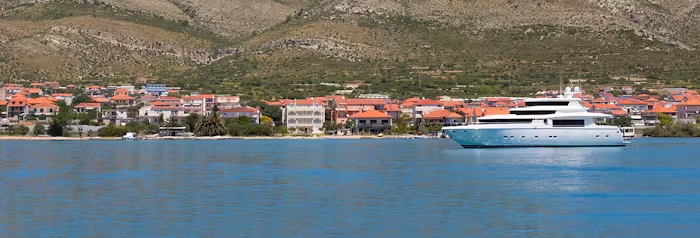
BOATERS BLOG
During the fall and winter, boaters enjoy an entirely new way to experience waterways. They can drop anchors in the normally bustling waterways, and enjoy the scenery. Yet boating in the off-season does come with certain challenges – the sun sets earlier, temperatures drop faster and there are fewer boats to assist in emergency situations. Therefore, your friends at the National Boat Owners Association prepared a few tips to keep you safe while boating in the off-season.
- Prepare for worst case scenarios: During the off-season there is little room for error, so practice the general rule of thumb for fuel use – one-third out, one-third in and one-third for emergencies. Also, consider a NBOA membership, which comes with 24-hour dispatch service. You should always carry a first aid kit, but during the off-season this kit needs to be a little more extensive. Your emergency kit should include: a calorie-dense snack, fresh water, a hot beverage, a roll of duct tape, a waterproof portable flashlight with extra batteries, flares, and matches. Store all these items in a water-proof bag.
- Keep a communication device with you: A mobile phone should only act as backup to your VHF-FM marine radio. If your trip takes you far from shore, then consider adding an EPIRB to your safety equipment. This allows the Coast Guard to pinpoint the location of a distress call from a DSC-VHF marine radio connected to a GPS receiver. Also, boaters should attach a whistle or horn to their life jackets.
- Dress for the weather: While boating in the off-season you need to dress appropriately. Wear layers, take extra dry clothing in a waterproof bag and, wear quality, nonslip footwear. Ideally, your top layer should be water proof. Always wear your Coast Guard approved life jacket.
- Know what to do: The intermittent warm days can be deceiving because the water temperature can still be chilly. To reduce risk of a swamped or capsized boat, make sure not to overload your boat, avoid situations that put anyone at risk of going overboard and again make sure everyone is wearing a Coast Guard approved life jacket. Understanding the vital phases of cold-water submersion, and knowing some basic techniques to delay hypothermia greatly increase survival. Hypothermia is when someone loses body heat faster than he can produce it. When someone initially experiences cold water submersion he will go into cold shock, a deep and sudden gasp followed by hyperventilation. It is important for the person not to panic, and concentrate on breathing. Cold shock passes in about one minute. Within the next 10 minutes the person will lose use of his extremities. Even in ice water it will take a person about an hour to lose consciousness. (To learn about cold-water immersion survival, visit coldwaterbootcamp.com.)
- Don’t boat alone: With fewer boaters on the water during the off-season it is especially important not to boat alone. Also, every boater should file a float plan with a trusted individual before each boat outing, whether boating during the summer or the winter. A float plan should include a description of the boat, the number of persons on board, the area where you’ll be boating and the anticipated time of return. The Coast Guard has float plan forms available online via uscgboating.org/safety/float_planning.aspx. If the time of return is changed after leaving the dock, then the person holding the float plan on shore should be notified as soon as possible.
- Know before you go: Before you head out on the water, it’s in best practice to take a boating safety course. Participating in a boating safety course may make you eligible for an insurance discount. Contact an NBOA representative for more information on the discounts you’re eligible to receive.
NBOA Marine Insurance is a purveyor of value: quality, impeccable customer service and competitive insurance rates. We say it time and time again at NBOA Marine Insurance, our marine insurance agents are also boating enthusiasts. We have extensive knowledge of the water, and have made it a priority to educate the marine savvy on the many things we have gathered throughout the years. To learn more about NBOA, visit www.nboat.com or call an agent directly at 1-800-248-3512.